
Wondering how Artificial Intelligence will influence the Google search engine results page?
You’re not alone. So we went to Google Labs to get a preview. Google Labs is a testing area for experimentation with early stage development prior to general release. What appears in Google Labs is usually an indication of future feature enhancements.
The term “AI-integrated search engine results” is a mouthful, so Google shortened it to Search Generative Experience, or SGE for short.
Acronyms in this article
AI: Artificial Intelligence
EEAT: Experience, Expertise, Authority, Trustworthiness
SEO: Search Engine Optimization
SERP: Search Engine Results Page
SGE: Search Generated Experience
We compared the current (traditional) search engine we all know and love to SGE in Google Labs. For the test, we used questions about making sourdough bread. Let’s dive into what we discovered.
Searching with Google’s Traditional Engine
First, the current Google search engine was asked, “How to make sourdough starter.”
The result from the traditional search should look familiar: A sponsored (paid) web page result followed by the organic (non-paid) results. It’s up to the user to decide which website(s) to visit, by reading displayed titles and meta descriptions, perhaps clicking through to several sites to get the answer.
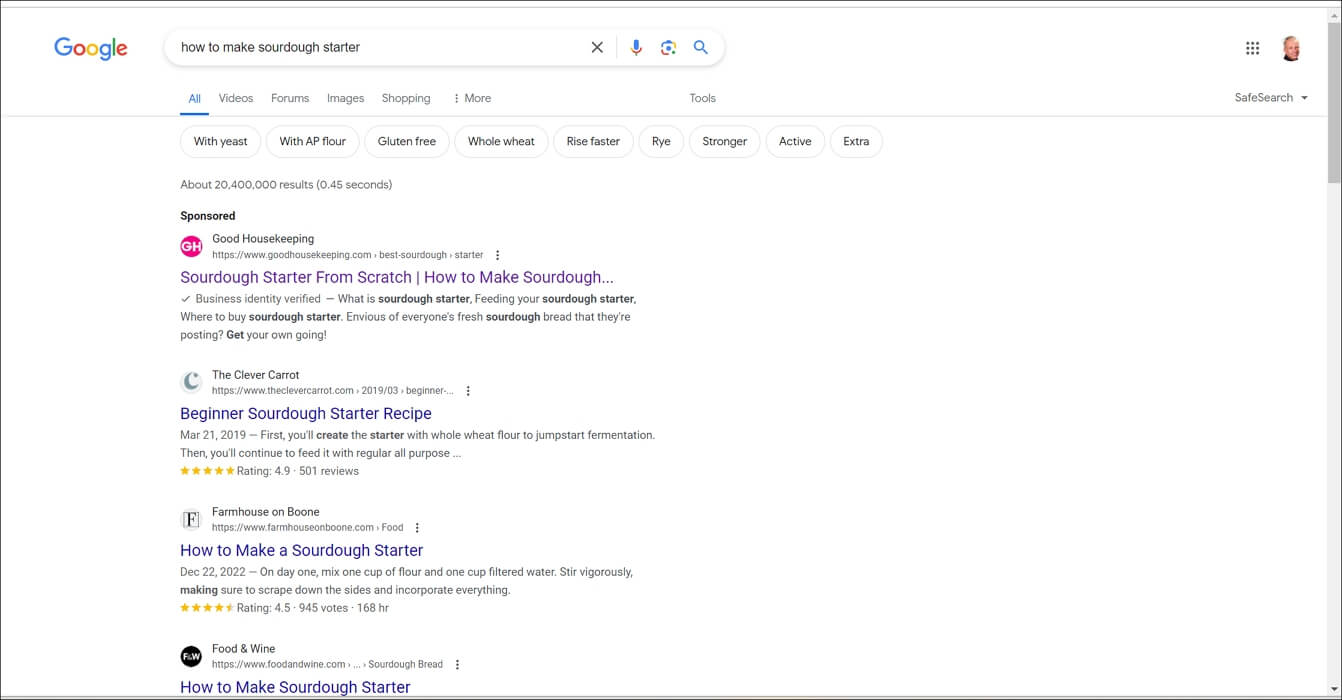
Searching with Google’s Search Generative Experience
Next, we posed the same question in Google Labs with the SGE search. This is where it gets interesting. If you look at figure 2 below, you will immediately notice that the user does not have to visit a website to get the answer; the complete answer is served up immediately.
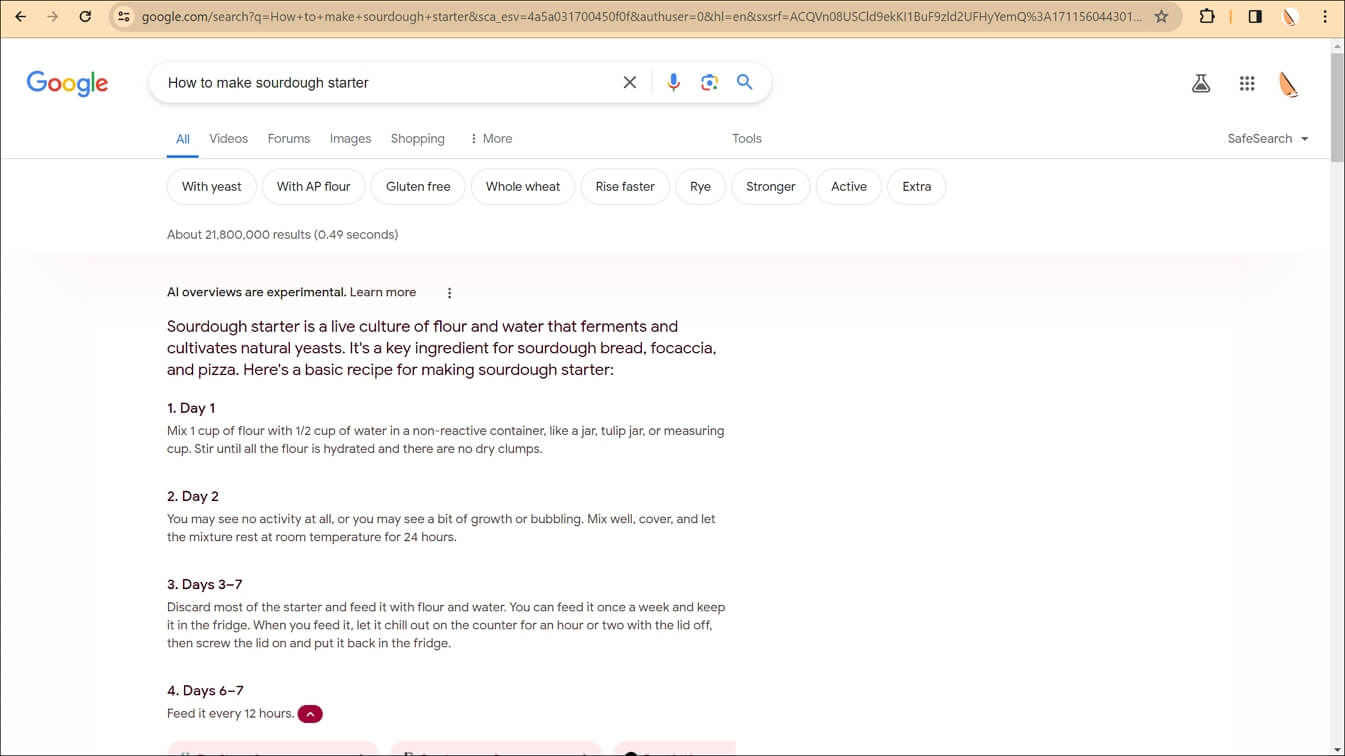
The AI-generated content appears very quickly; Google users expect speed and accuracy.
Figure 3 shows what is below the fold (scrolling down) from figure 2. Note the same resulting web links appear as they do in the traditional search engine. The sponsored content is missing in Labs, but Google says it will be in the results when SGE goes live.
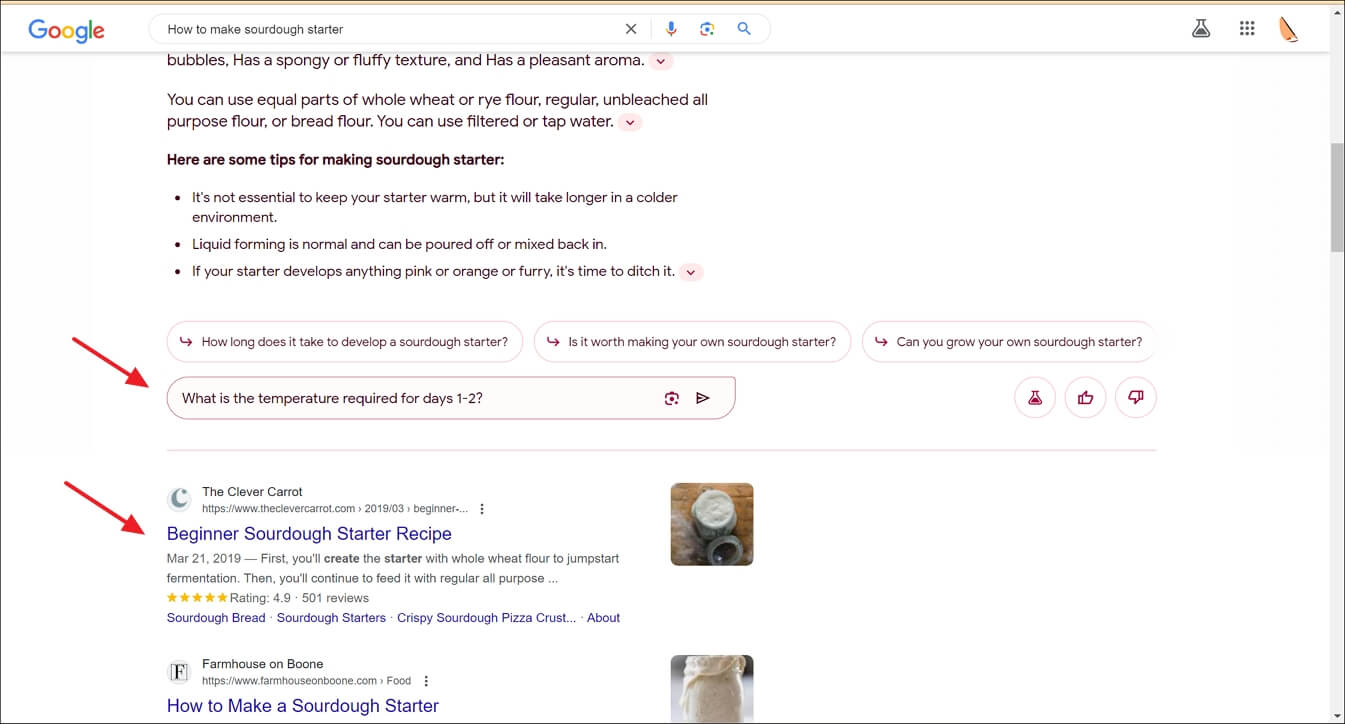
Notice in figure 3 that the user is invited to ask a follow-up question, which does not occur in a traditional search. Another cool feature is that because of AI, Google automatically knows that the follow-up question is in the context of the first search result; we don’t need to specify “sourdough” in the follow-up question.
In the space provided for the next question, I asked, “What is the temperature required for days 1-2?”
The screen in figure 4 is the answer to the follow-up question; the question is redisplayed at the top along with the original search question.
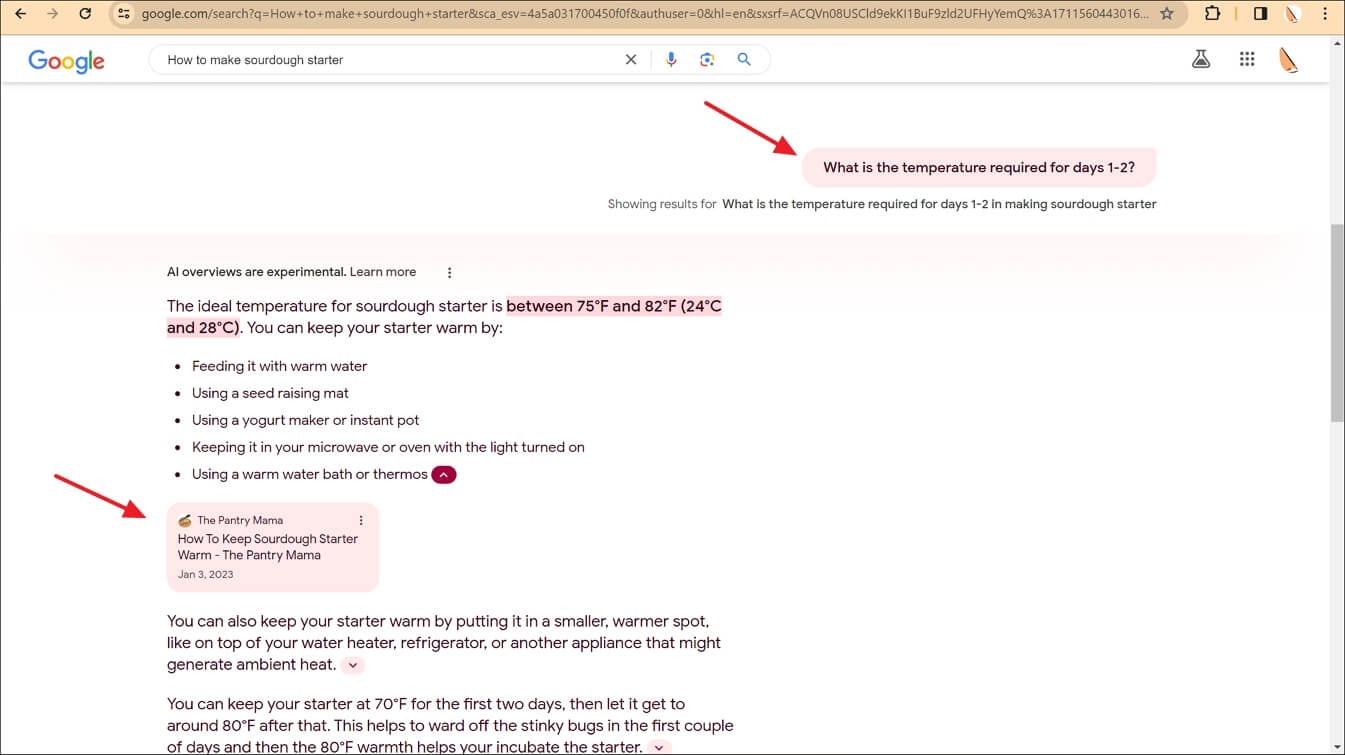
Note in figure 4 that in the middle of the answer, a link to the web page from “The Pantry Mama” is embedded. What a prime position! Why that page? Clicking on that link brings us to the site in Figure 5.
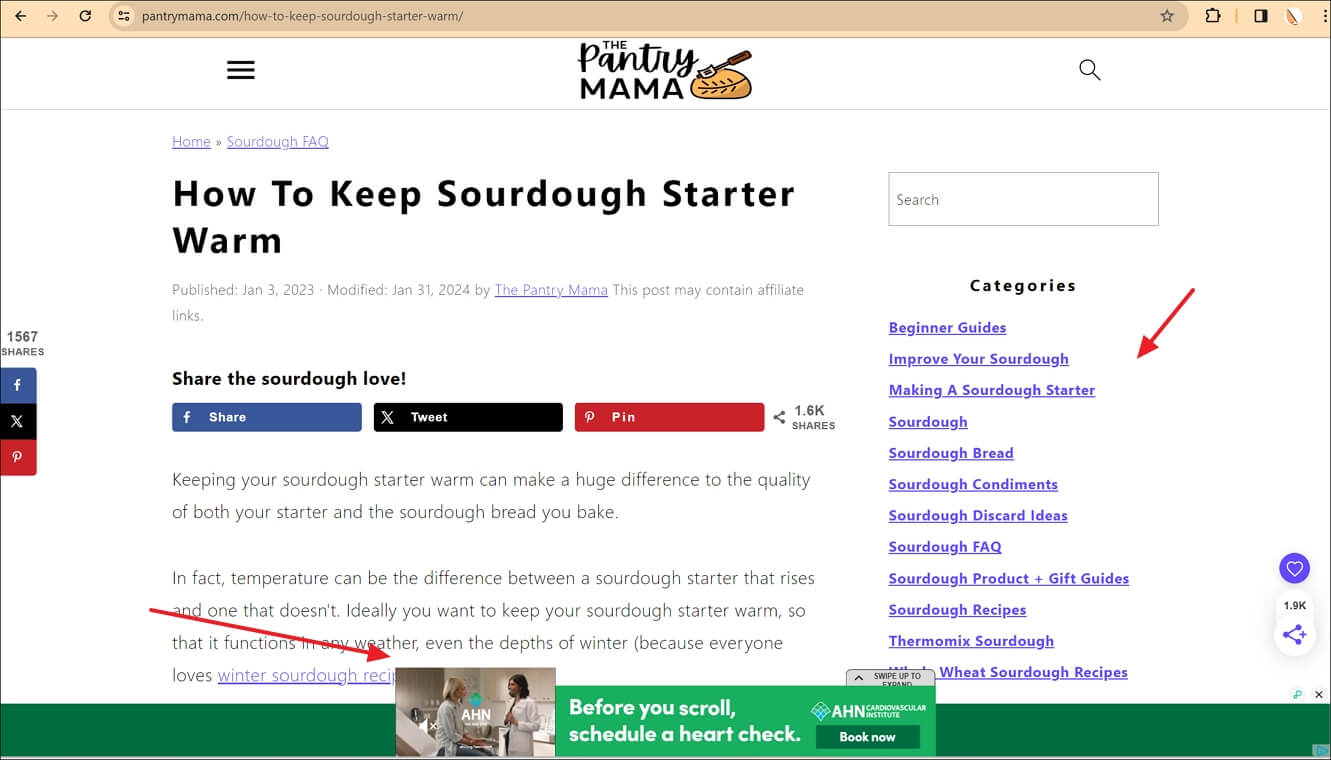
This is an example of EEAT in search — the Google acronym for Experience, Expertise, Authoritativeness, and Trustworthiness. Google has been working to deliver good search results, not just SEO-optimized pages salted with keywords and backlinks. Those are still important SEO factors, but good content is what Google wants to deliver. Keep in mind that over half of Google’s revenue comes from Search-related services, so keeping users using the Google search engine is important.
Further Reading
On SGE: Supercharging Search with Generative AI
https://blog.google/products/search/generative-ai-search/
on EEAT: Search Quality Rater Guidelines
https://static.googleusercontent.com/media/guidelines.raterhub.com/en//searchqualityevaluatorguidelines.pdf
If you want to learn more about EEAT, you can follow the links in Google’s Search Quality Raters Guidelines which were updated in late 2023. There is no way of knowing what EEAT score “Pantry Mama” has earned, but clearly Google views her as an authority on baking, given her authorship of multiple articles on sourdough bread. Gauging from the active comments and high engagement on her site, we can also surmise that Google deems her trustworthy, as well.
Our Takeaways on Google’s SGE
After spending time in Google Labs, I leave with two key takeaways.
The first is that the search experience for the user is only getting better. AI will speed up the delivery of relevant information and anticipate what else a user is searching for. Expect to be impressed by how swift and complete searches will become.
As with any generative AI, there is a slim chance the answer could be wrong. It is up to the user to vet the information provided. While Google strives to ensure that authorities have earned the “T” (trustworthiness) in EEAT, responsibility for triangulating and confirming information still falls to the user.
The second takeaway is for creators. Content is king, more now than ever before. SEO practices remain important, but if the content is deemed to be irrelevant or of poor quality, they won’t matter. The search engines aren’t just matching keywords and tracking backlinks; quality content is key.
If you need help with telling your story with good quality content, media placement, or creating a crisis communication plan, please contact us and let us know how we can help.

About the Featured Image
My son has been experimenting with homemeade sourdough bread. The conversation was fresh on my mind when this article was prepared. The photo is his first attempt.
– Jon